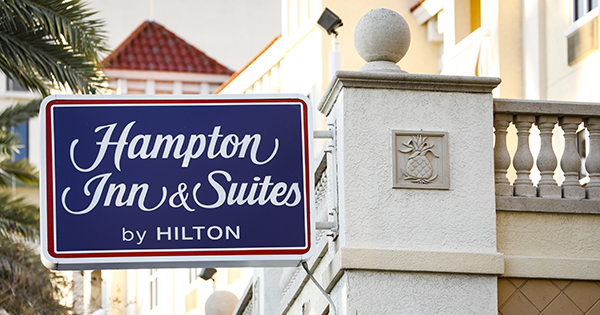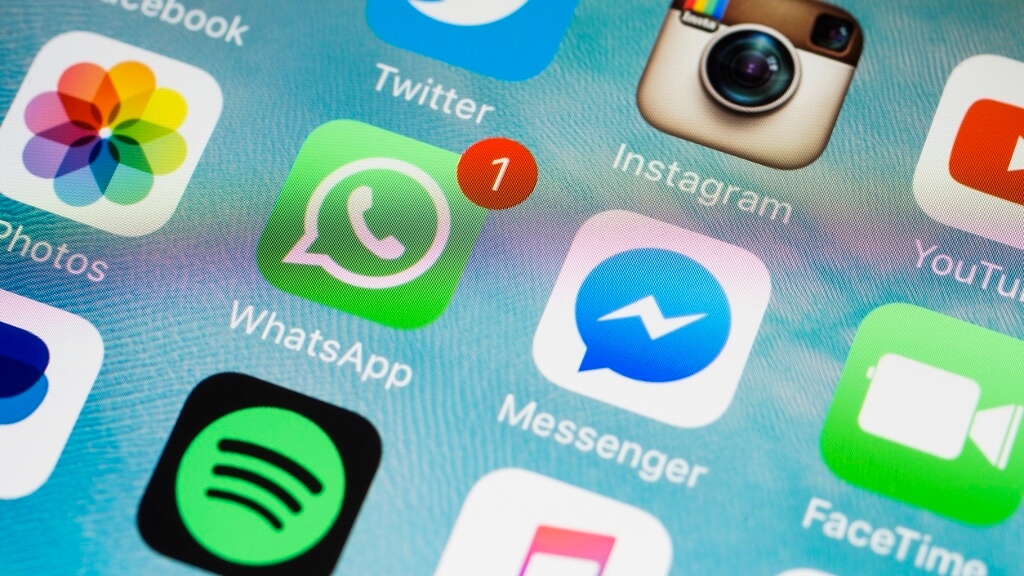SHA students design a hypothetical post-pandemic marketing plan for a popular hotel chain | UB today

Round up for heroes!
It sounds like a slogan you’ve heard before during the pandemic, an exhortation to give a little to help first responders and other essential workers. Was it in the advertisement of this chain of sub-stores? Or was it something the cashier at the supermarket asked for?
Neither, in fact. It was a key part of a hypothetical marketing campaign created by five senior hotel administration school seniors for a class project for the Hampton by Hilton hotel chain.
Customers would be asked to round up their bill, with the change going to a program to fund free stays for pandemic heroes. “We have all counted on them in times of need and we want to return the favor, so that they can count on us for a relaxing and enjoyable stay in their chosen destination,” said Bobby Hyun Chang Lee (SHA ’21) during the team’s final presentation at the end of April.
While the plan may or may not come to fruition in some form one day, the actual Hampton executive who was the team’s “client” was impressed.
“Wow,” said John Seabreeze, director of brand management for Hampton by Hilton, during the Zoom presentation. “I’ve been to a lot of marketing presentations and usually find all the reasons why it won’t work. And I struggled to find the reasons why it wouldn’t work.
The Hampton team and six other groups took different real-life Hilton brands as customers of a kind in their Advanced Hospitality Strategic Marketing course, taught by Leora Lanz (COM’87), SHA Associate Professor of Practice and Chair of the Masters from school. hotel management program. The others included Hilton, Hilton Garden Inn and Tempo by Hilton.
“My goal in this class is to take our students to the other side of graduation — the real world,” Lanz says. “I tell the students that this is a fierce project, and it should be. First of all, it’s an advanced class and second, it’s super rewarding to be motivated and boosted to reach great heights that they didn’t know they could achieve. It’s a relief for students once introduced, but after a day of accomplishment, it’s something they remember and put on their resume.
Students were expected to learn how to assess a situation and perform competitive analysis through market research, establish specific marketing goals and strategies, and offer recommendations directly to the client in a final 20-minute presentation.
The Hampton team has taken on a tricky challenge in the Hilton franchise, whose 2,700 hotels (2,400 in the US) include Hampton Inn and Hampton Inn & Suites. Hampton has had the same issues as many other chains over the past year, and the students wanted to help the brand get started after the pandemic. But that meant finding new marketing angles for a mature 37-year-old brand whose customers love its friendly service and free breakfast – a brand so strong it hasn’t changed its dark blue logo in all this time. time.
The students’ goal? “To refresh the brand, but more in the sense of who we want to target and bring into the hotel in a post-COVID world,” said team communicator Alexandra Rich (CGS’19, SHA’21) .
“It’s hard to take an established, successful brand and come up with something new,” Lanz told students more than once during the semester.
Hampton by Hilton has 90% brand awareness and 45% brand consideration, noted Logan Cockerill (CGS’21, SHA’21), Hampton team player and captain of the men’s hockey team at the BU. When Hampton team members marked their most recent destinations on a map as part of the presentation, Cockerill’s retort was: “I travel to Chicago, Illinois, and all over the Midwest to play hockey.”
“Our range is simply unbeatable,” said Hampton team captain Pierre Moglen (SHA’21) as they began their final presentation.
It is “our reach”, as in that of Hampton. The students dressed up for a business meeting, used “our” and “we” and even managed to get this Hampton by Hilton logo to appear on all of their Zoom screens.
The industry consensus is that leisure travel will pick up ahead of business travel after the pandemic. Ling Xu (SHA’21) defined the target markets for his campaign: leisure travelers, especially families and amateur and youth sports teams, who already tend to be Hampton customers; business road warriors, especially budget-conscious freelancers; essential workers such as nurses and members of the National Guard on pandemic duty assignments; and the internal audience of hotel owners and staff.
The team offered a wide range of recommendations, from media spots to “digital touchpoints” (such as pre- and post-stay emails to guests) to signage in the hotels themselves. “We aim to build strong relationships with customers and spread the message that we are always here, for you.”
The plan included a new marketing initiative: Always Here for Heroes.
“This program would allow and encourage hotel guests to round up their total bill to support free stays in Hampton for local heroes,” Moglen explained. “Once an individual property has collected enough donations from the scheme, they could and would be encouraged to invite a local essential worker for a free stay. Prior to arrival, the assigned room would be prepared with a welcome card in Hampton’s name thanking the hero for his humanity, kindness and inspirational strength, sending the message that we are always here for you.
One of the key semester texts, Rich noted, was The conscious marketer (Amplify, 2020) by Jim Joseph, who “distinguishes between specific offerings and overall brand value by stating that products provide functional value, while brands provide emotional benefits”.
“You’ve done a great job connecting our positioning to our marketing, and a great job connecting our reliability…Always here—and our friendly reputation—for you“, Seabreeze said. “I liked it.
Non-Hilton Courses
One of the main takeaways from the semester’s work was that “resting on your laurels is not enough!” Moglen said after the presentation. This became evident through their efforts to create marketing strategies to keep a mature, yet highly successful brand fresh, energetic and relevant.
“I also discovered that the same applies not only to companies and brands, but also to individual careers,” he says. Being a team captain “felt like a leadership internship at times”, offering both challenges and rewards. The hardest thing was keeping everyone on the team “motivated, excited, and actively participating even though this was just one of many demanding group projects in our last undergraduate semester.”
“It’s a tough project, and our students are up to the occasion,” says Lanz. “Here’s what’s great: when the ‘customer’ hears us and actually implements our suggestions. And we’ve already heard of a few Hilton teams, and they sent us marketing job opportunities as well.
Add an extra level of difficulty: two members of Team Hampton were on the other side of the world. Thanks to the pandemic, Xu and Lee were at home, Xu in China and Lee in Korea, for the semester.
“The most difficult thing is definitely the time zone,” Xu emailed from Zhejiang province. “During the last two weeks of the project, I had to attend classes and work on final projects until 3 or 4 a.m., then wake up at 8:30 a.m. for our Hampton team’s daily meeting.
“The last few weeks were always crazy, with heavy workloads,” she says, “but this semester was crazy because of the time zone. With everyone’s busy schedule and jet lag, it’s become normal for me to stay up until 2 or 3 in the morning throughout the semester.
Explore related topics:



